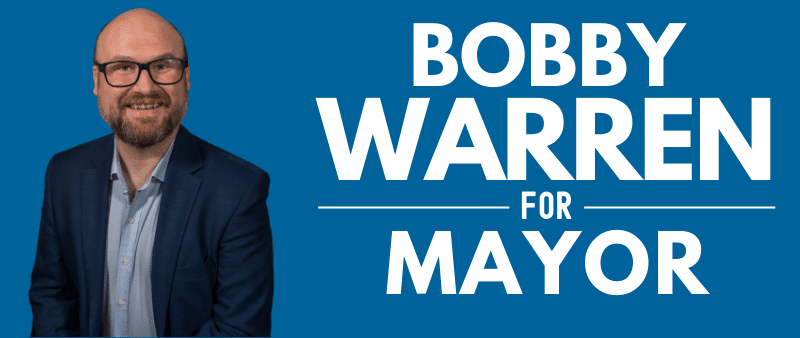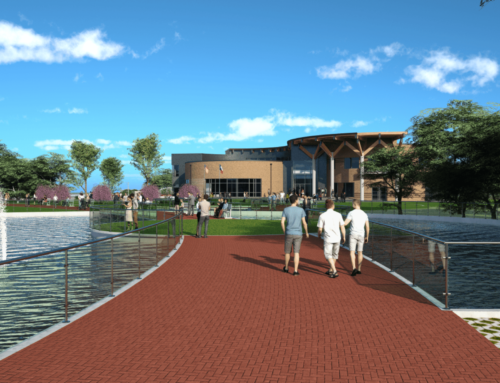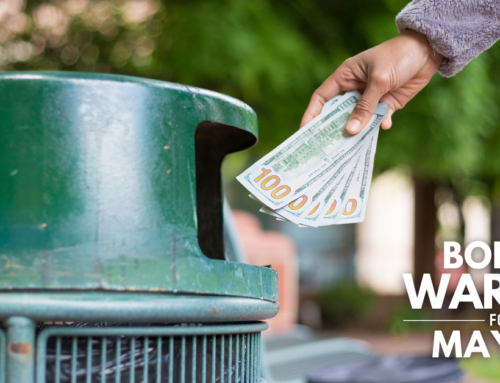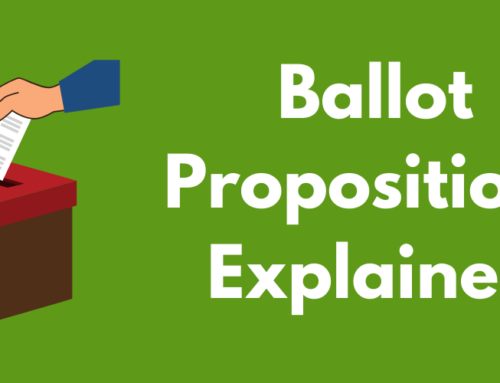[Update, January 7, 2019: The Jersey Village City Council will hold a work session at the Jersey Village Civic Center (16327 Lakeview) on Monday, January 14, 2019 at 6:30 p.m. to discuss the viability of my proposal to increase the residential homestead exemption from the current 8% level to 20%, the maximum allowed under state law.]
With a few exceptions, I have found that residents in Jersey Village believe they receive good value for the property taxes they pay to the city. We have managed over the years to maintain extraordinarily high-quality emergency services, great parks, excellent infrastructure and we have made efforts to improve the image and aesthetics of our community. All of these are ongoing efforts, and I am proud of the steps my colleagues and I have taken on these issues while on council.
It is time, however, for our city council to re-think the way we have approached property tax revenues in the recent past. While it is admirable on one level that city council has left the property tax rates intact for the last several years, rising property values have meant that council’s inaction has required homeowners to pay ever-increasing amounts in property tax to the city.
Rising Tax Revenues
It has become apparent that despite construction on Highway 290, property values are not going to drop anytime soon. Since 2010, property tax revenues for the City of Jersey Village have increased by 21% when adjusted for inflation. Sales taxes revenues have soared, increasing 66% in that same period of time, accounting for inflation.
The continued efforts of our city to stimulate economic development should produce additional growth in sales tax revenues. What city council must focus on in the near future is using those sales tax revenues to curtail the growth of property tax revenues and reduce the overall burden our residents bear to fund our city government.
Slow Expense Growth
The good news is that total expenditures by the City of Jersey Village from the general fund have not grown nearly as quickly as revenues. Adjusting again for inflation, total expenditures since 2011 have risen only 9%. When we take into account the fact that our population increased by 3% during that same time, this shows an admirable display of restraint. It also means that we have accrued a significant surplus.
The Wise Use of Habitual Budget Surplus
At the end of the 2016-2017 fiscal year, the City of Jersey Village had a general fund balance of $17,485,949.68. The first and most important use of any general fund balance must be to establish an operating reserve, or as some may call it, “a rainy day fund”.
The Government Finance Officers Association (GFOA) recommends maintaining, at a minimum, a 90-day operating reserve. Cities may, based on their needs and the uncertainty of their revenues and expenses, maintain larger reserves. In fact, the current city policy is to maintain a 150-day operating reserve. Based on this fiscal year’s budget, however, Jersey Village has sufficient reserves to cover over one year’s worth of expenses. This is, quite frankly, excessive.
Jersey Village has kept general fund expenses below its revenue for 14 years in a row, going back to the 2003-2004 fiscal year. While this is admirable, it also means that over those years taxpayers have not seen the full benefit of their contribution to our city government. Maintaining a healthy balance is always a smart idea, but continuing to stockpile cash while taxpayers continue to pay more over time isn’t right. We have to strike a closer balance while continuing to protect our city’s financial health.
Major Capital Expenditures
Our current Capital Improvement Plan (CIP) does contain a number of critical items that will need to be implemented in the near future. Our highest priorities in that plan are related to flood mitigation: the golf course berm and storm drainage improvements on and around Wall St. Our reserve fund balance gives us the ability to pursue these projects on a cash basis. We are also moving forward with reconstruction of our golf course clubhouse in the next year or two. A new city hall will need to be built sooner rather than later.
Even when taking into account our current CIP, there is no reason why city council cannot move forward with some modest tax breaks, with an eye on potentially doing more once we have awarded contracts for the more critical items on our CIP. The total estimated value of all projects on the CIP to be funded by the general fund is $29.75 million. The current general fund balance is substantial enough to cover one-third of all of those projects without touching our 150-day operating reserve.
An Increase in the Residential Homestead Exemption
One step we can take immediately to provide our residents with property tax relief is to increase the residential homestead exemption. State law allows cities to exempt as much as 20% of the assessed value of a homestead from municipal property taxes. The City of Jersey Village currently has an 8% homestead tax exemption. I will advocate during our budget meetings for city council to raise that exemption to the maximum 20% level.
Based on 2017 property valuations, the average home in Jersey Village (valued at approximately $277,000) with only a standard residential homestead exemption would see their annual property tax payment to the city drop from $1,891.57 to $1,644.85 per year – a 13% reduction. That’s a savings of $246.72 per year.
If this higher homestead exemption was available last year, the city’s property tax revenues would have dropped by approximately $500,000, only a 3% reduction in total revenues.
Balancing Investments in Development With Fiscal Conservatism
I have been a strident advocate for making investments in our city which increase our quality of life and continue to attract new residents and businesses into Jersey Village. We must, however, make these investments in a mindful way and not simply because the revenues are there for us to do so. We can continue to pursue development in Jersey Village as envisioned in the Comprehensive Plan while slowing the growth of tax revenues and retaining a healthy balance sheet.
In fact, without taking into account any projected increases in property value or sales tax revenues, the city could enact my proposed homestead exemption increase, fund all projects currently listed on our Capital Improvement Plan over the course of six years, make healthy investments averaging $500,000 a year in comprehensive plan items such as new city entrances, wayfinding signage and improvements in the aesthetics of our common spaces without endangering our 150-day operating reserve and without taking on any new debt. In fact, the city is on track to be debt free in less than 10 years and should turn to a “pay-as-you-go” financing system for all future projects, including improvements to infrastructure and development of new amenities.
City council must have discussions regarding our sales tax revenue projections, increased costs, inflation and other factors which may require some upward adjustment to overall property tax revenues. But such adjustments must be made mindfully and with the goal of keeping growth of this particular revenue stream to the minimum needed. In all such cases, the focus must remain on the total projected revenues and the impact on our residents, not simply on the property tax rate itself.
I anticipate that this will be an ongoing conversation between the members of city council and citizens. We should continue to evaluate projects which add to the value of our city and determine how we should pay for them in a way that makes sense for our city. By remaining mindful of the size of our city budget, and adjusting our tax policy appropriately, we can achieve all of these results together as a community.





